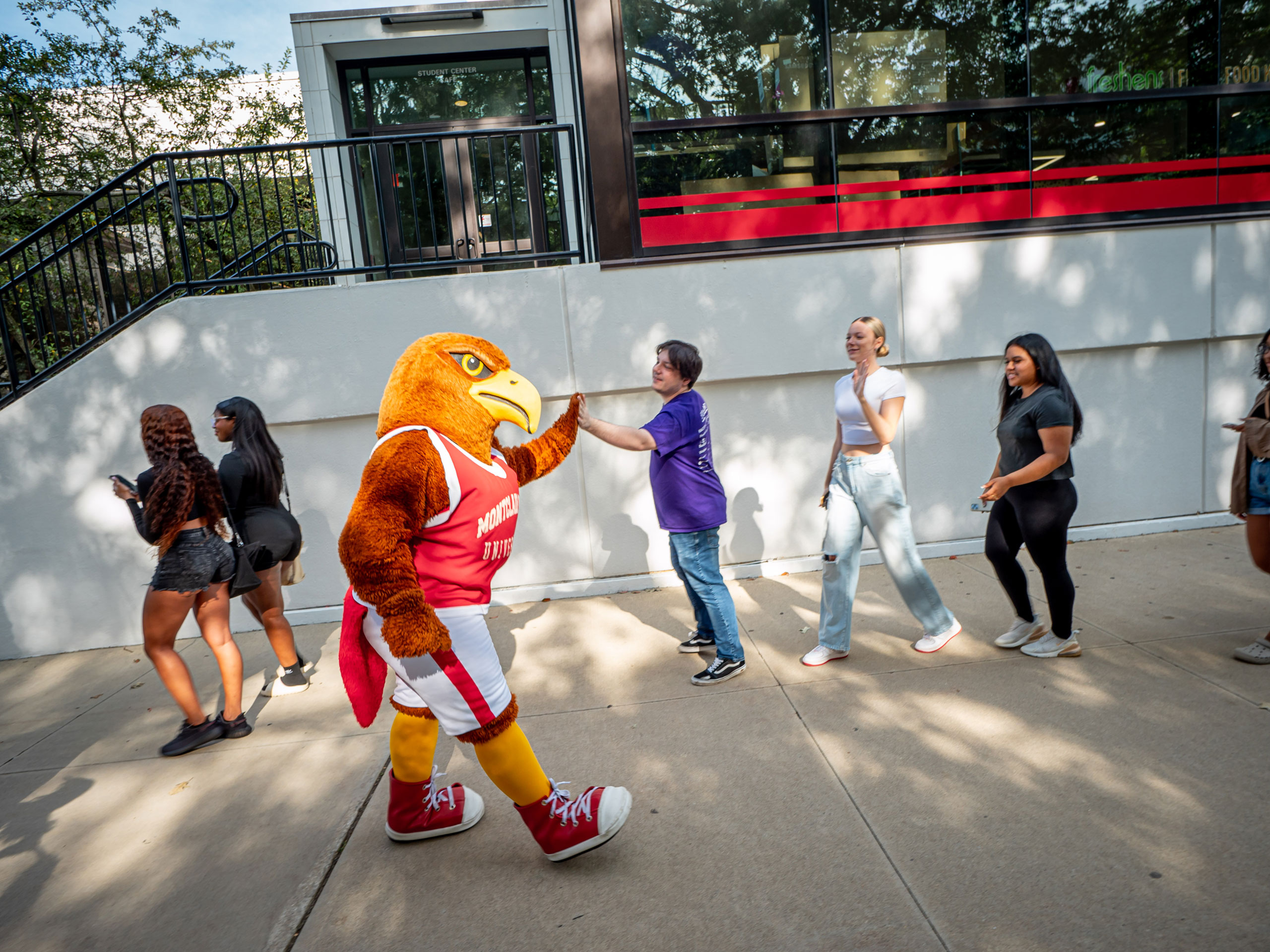Excitement Abounds on Move-In Day
University counselor – and college parent – shares insights on time of transition for students and parents
Posted in: Admissions, Homepage News, Uncategorized, University

While Move-in Day is an exciting one, it can also be a time of mixed emotions – especially for first-year students and their parents as they embark on their next chapter. Montclair State University staff have been providing some advice to help create a smooth transition for both students and parents – particularly those leaving home for the first time.
As part of the University’s overall orientation this week, Montclair Counseling and Psychological Services (CAPS) counselors have been leading sessions for students and their parents at Memorial Auditorium and University Hall, giving them an overview of the University’s resources and letting them know how CAPS can support students, says Sudha M. Wadhwani, a staff psychologist, who also happens to be a parent of two college students.
“We talk with parents about how we refer to their children – as students not as children – and we encourage them to guide and support their students but let their students take the lead in contacting professors, in reaching out to schedule appointments with advisors, with counseling services, with the Health Center,” Wadhwani says. “That process of ‘adulting’ in the real world starts now.”
For Wadhwani, Move-In Day and the orientations hit close to home, having recently gone through this rite of passage with her own two children, a junior and a freshman, both of whom are attending college out of state, making her a newly minted empty nester. She admits to shedding some tears and showering her “dog baby” with lots of extra love as a result.
“This year feels very different when I do the parent orientations because I’m there myself. I can just go sit in the audience with them,” she jokes, adding, “I have much more empathy for parents. They’re excited and nervous for their children. They’re anxious. It’s hard to let go. As a parent myself, I feel all of those emotions. But if my student is doing well, then I’m doing well. If they’re happy, I’m happy. If they’re enjoying their experience, I’m happy for them.”

While students have likely “separated and individuated developmentally” over the years, “Now is the most profound transition” for both parents and their students, she says.
Wadhwani reminds parents that “From Day One, we’ve been working toward this moment, and now we hope that they have the skills and values that we have tried to instill in them.”
It’s all about “finding that balance of how much to support and guide your student and how much to let go and empower them to adult.”
Wadhwani urges students to set up check-in times with parents that don’t interfere with class or study time, to utilize Montclair’s many resources and get involved in the many activities or clubs on campus. “Particularly if they are commuters to get involved, to not just come here and go to classes and then go home,” she says, noting that college life is not just “an extension of high school.”

CAPS staff also inform parents of mental health resources — available for free to students. “I make clear that this is a stigma-free campus, and that we believe that seeking counseling and all of our other services is a healthy thing to do,” Wadhwani says. “We want them to know that their students are not alone.”
There’s no one-size-fits-all answer to dealing with the high school-to-college transition, Wadhwani says. “It varies depending on if your student is living on campus or commuting, based on cultural background, on each individual family’s needs and dynamics, as well as each student,” she says.“Each student has their level of readiness as well, depending on how the high school years have gone, depending on whether they may have mental health concerns, whether they may have a peer-support system or already have built certain skills.”

Wadhwani says it’s important for parents to give their adult children “the opportunity to express and create their space and their story at this point in their journey.”
“We have so many opportunities for our students to develop in all areas of their identities, to get engaged and involved and become leaders,” she says. “We know that students who are engaged are likely to build greater confidence and skills, better manage their time and have stronger mental health and ultimately, do even better academically.”

More scenes from Move-In Day and Orientation





[caption]
[caption]


Story by Staff Writer Sylvia A. Martinez. Photos by University Photographer Mike Peters and John J. LaRosa.
You May Also Like:
Summer Scholars Get a Jump-Start on Fall
